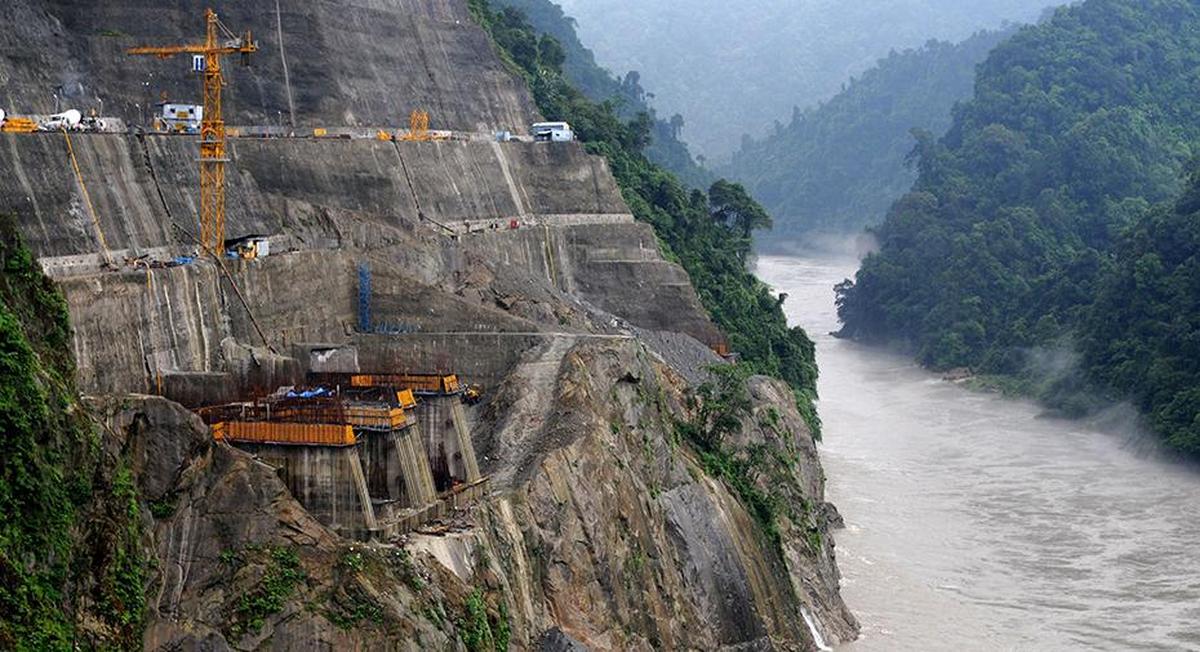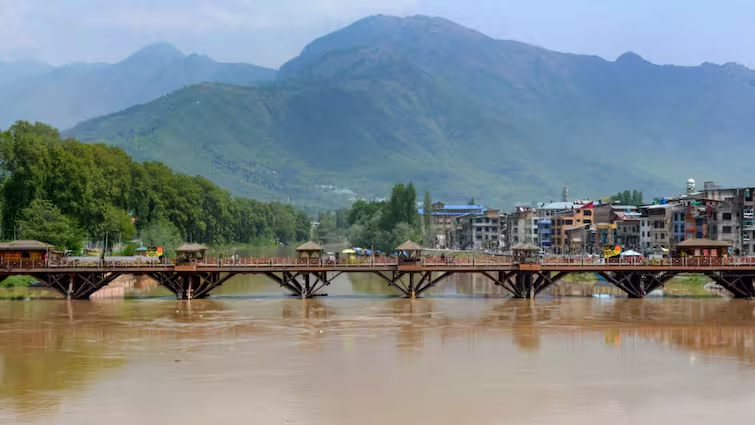South Asian Floods Wreak Havoc, Urgent Climate Action Imperative
South Asian Floods Expose Urgent Need for Global Climate Action and Funding Equity

By Mohammed Rabnawaz Choudhary
Large-scale destruction due to floods in South Asian countries , immediate measures are needed to deal with climate change, and steps must be taken to establish a global risk index and ensure food security. The burden of climate change must be distributed fairly, not equitably, if global corporations cooperate, enormous resources can be made available.
The priorities for South Asian countries have never been clearer, the global adaptation goal needs to be prioritized both in terms of financing and timelines, South Asian countries need additional funding rather than loans to restore and rebuild its infrastructure. Underscoring the need for new, additional and sustainable sources of climate finance, the current financing gap is too large to sustain the real rehabilitation needs of those on the front lines of climate catastrophe.
A global climate risk index should be created under United Nations, it is a case of now or never, and the mechanisms outlined in the Paris Agreement should respect even more obligations. millions of people were affected by the devastating floods , more than half of whom were women and children.
Some countries received seven times the average rainfall and trying it’s best to avoid the devastation caused by the melting glaciers. Due to floods, more than thousands kilometres of roads were destroyed,railway tracks were damaged and hundreds of bridges were destroyed and standing crops were damaged.

Billions of US dollars were lost due to floods
Global adaptation goals need to be prioritized both in terms of financing and timelines. A balance between adaptation and financing commitments, and the current financing gap is too large to sustain the real recovery needs of those on the front lines of climate catastrophe. But funds have to be provided for climate disasters.
Climate finance should be clearly defined as a new, additional and sustainable resource with a transparent mechanism that meets the needs of developing and vulnerable countries with the speed and scale that is needed.

In Copenhagen in 2009, at the COP 15, promises were made to provide 100 billion dollars annually till 2020, but they have not been fulfilled yet. A global climate risk index should be created by all parties to the UNFCCC under the UN system. Projects from the most vulnerable countries in this index should receive priority and accelerated approval for climate finance.
There is a need to restore a clear burden-sharing formula regarding climate change. A commitment to greater obligations than the procedures outlined in the Paris Agreement should be respected. In the winter season, flood victims needed shelter, medical treatment and food, for this countries spent billions.
All countries in South Asia at highest risk to suffer from such climatic or man-made natural disasters and need additional funds instead of loans to rehabilitate and rebuild infrastructure. Climate change is the biggest crisis of this decade, It is now an undisputed scientific fact that climate change and global warming are happening much faster than we thought, it is also a fact that developing or less developed countries and communities that are on the front lines are in dire need of help.
![A man rides his cycle rickshaw with a passenger through a flooded street after heavy rains in New Delhi. [Anushree Fadnavis/Reuters] 9 Jul 2023](http://southasiancorrespondent.com/wp-content/uploads/2023/09/india-1024x538.webp)
Focusing minds on how the effects of such climate change fall on the most vulnerable, more than half of the millions of people affected by the floods are women and children, of whom thousands of pregnant women were forced to live under the open sky, the livelihood of farmers were destroyed, a million acres of agricultural land had been damaged.Millions of people were in urgent need of health services, humanity has entered a new era of climate change, and the limit of acceptable climate change has already been crossed. Of course, it will not be limited here, as evidenced by the recent effects of climate change in Nigeria and South Sudan.
The World Bank estimates that if we do not take measures now to deal with climate change, 216 million people will be displaced by 2050, most of whom will be in Africa and South Asia. While 750 million people in South Asia are affected by disasters caused by climate change, 100 million people in developing countries could fall into poverty by 2030. the floods in Pakistan displaced 10 million citizens who became climate refugees in their own country.
A large number of glaciers and the average rate of snow melting is 3 times. Countries needs climate finance to deal with the impacts of climate change, climate change risk and warning systems and to recover from the devastating effects of climate change. All countries need to urgently solve the problem of the effects of climate change, the burden of climate change should be distributed fairly, not on the basis of equality, it is a matter of climate justice, and we should use this opportunity. Secure the future of the world’s most vulnerable nations.
Mohammed Rabnawaz Choudhary, a senior Pakistani journalist, holds the position of Vice President at the South Asian Climate Change Journalists Forum (SACCJF).




